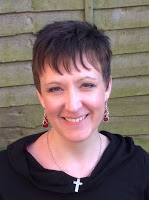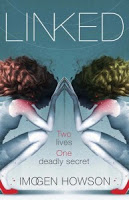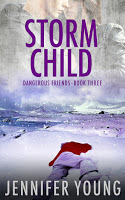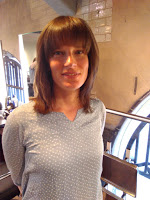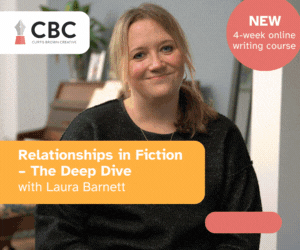The New Writers’ Scheme
4 December 2017
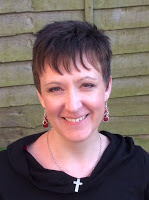
Today
we welcome not one, not two, but three RNA members to the blog to talk about
their different experiences of the New Writers’ Scheme. We’re delighted to be
joined by scheme member, Sasha Greene, schene reader, Jennifer Young, and our NWS
Co-ordinator, Imogen Howson. Imogen is up first:
we welcome not one, not two, but three RNA members to the blog to talk about
their different experiences of the New Writers’ Scheme. We’re delighted to be
joined by scheme member, Sasha Greene, schene reader, Jennifer Young, and our NWS
Co-ordinator, Imogen Howson. Imogen is up first:
In 2018, the RNA will offer 300
memberships to writers who are not (yet) published, and so who are not (yet!)
eligible to join the RNA as Full or Independent members. These New Writers’
Scheme (NWS) members will then have the opportunity to send in a full-length
manuscript for a critique from our team of readers, all of whom are
multi-published, experienced authors.
memberships to writers who are not (yet) published, and so who are not (yet!)
eligible to join the RNA as Full or Independent members. These New Writers’
Scheme (NWS) members will then have the opportunity to send in a full-length
manuscript for a critique from our team of readers, all of whom are
multi-published, experienced authors.
As NWS Organiser, I have the
privilege of managing the administration involved.
privilege of managing the administration involved.
And it is a privilege. In the world of writers’ organisations, the NWS
is, as far as I know, unique.
is, as far as I know, unique.
The life of a writer is an
isolating one. And all the craft books,
talks, workshops and writers’ forums in the world can’t offer the help that you
get from an actual hands-on appraisal of your writing. It’s why personalized
rejections can be so valuable (albeit disheartening!), and one of the many
reasons why a good agent or editor is worth their weight in gin.
isolating one. And all the craft books,
talks, workshops and writers’ forums in the world can’t offer the help that you
get from an actual hands-on appraisal of your writing. It’s why personalized
rejections can be so valuable (albeit disheartening!), and one of the many
reasons why a good agent or editor is worth their weight in gin.
So being in the position of
assigning manuscripts to the most appropriate reader, sending the resulting
report to the writer, and then hearing the subsequent success stories, is
deeply satisfying.
assigning manuscripts to the most appropriate reader, sending the resulting
report to the writer, and then hearing the subsequent success stories, is
deeply satisfying.
This year, in particular,
I’ve had a huge amount of comments from the readers for the scheme, telling me
that the quality of manuscripts this year has been particularly good. I’ve also had a huge number of extremely
happy members of the scheme contact me, asking me to pass their thanks to their
reader and saying how helpful and encouraging their reports have been.
I’ve had a huge amount of comments from the readers for the scheme, telling me
that the quality of manuscripts this year has been particularly good. I’ve also had a huge number of extremely
happy members of the scheme contact me, asking me to pass their thanks to their
reader and saying how helpful and encouraging their reports have been.
This year, as every year,
I’ve also seen members take their revised manuscripts to publishers, and end up
with contracts. Something that the RNA celebrates at our Summer Party in May each
year, when the Joan Hessayon Award is given to someone whose book has been
through the NWS and has gone on to be published.
I’ve also seen members take their revised manuscripts to publishers, and end up
with contracts. Something that the RNA celebrates at our Summer Party in May each
year, when the Joan Hessayon Award is given to someone whose book has been
through the NWS and has gone on to be published.
The presentation of the Joan
Hessayon Award is a lovely event. It’s
wonderful to see all the members who are ‘graduating’ the NWS, a thrill to see
who’s won this year, and always fun to change from writing clothes (pyjamas,
anyone?) into party clothes to celebrate with them.
Hessayon Award is a lovely event. It’s
wonderful to see all the members who are ‘graduating’ the NWS, a thrill to see
who’s won this year, and always fun to change from writing clothes (pyjamas,
anyone?) into party clothes to celebrate with them.
Managing the day-to-day
administration of the NWS is, admittedly, less glamorous, but on the other
hand, it gives me the opportunity to read emails from members saying: “When I
sent my manuscript in for critique I didn’t know any more whether it was good
or terrible. Thanks to my report, I now know that it is good, but I also know how to make it better.”
administration of the NWS is, admittedly, less glamorous, but on the other
hand, it gives me the opportunity to read emails from members saying: “When I
sent my manuscript in for critique I didn’t know any more whether it was good
or terrible. Thanks to my report, I now know that it is good, but I also know how to make it better.”
Or sometimes, which is even
more lovely: “This year has been really discouraging, and I’d reached the point
where I was thinking of giving up writing. My report has given me so much
encouragement and spurred me to carry on.”
more lovely: “This year has been really discouraging, and I’d reached the point
where I was thinking of giving up writing. My report has given me so much
encouragement and spurred me to carry on.”
I don’t get to put on my party
dress and heels and drink prosecco when I read those emails (although I guess I
could!). But all the same, knowing I’m part of an organization that not only
helps writers become better, but helps them know
they’re better, what could be more exciting than that?
dress and heels and drink prosecco when I read those emails (although I guess I
could!). But all the same, knowing I’m part of an organization that not only
helps writers become better, but helps them know
they’re better, what could be more exciting than that?
Imogen Howson writes science
fiction and fantasy for young adults. She
won the YA category of the Romantic Novel of the Year 2014 with Linked, and also won the Elizabeth
Goudge trophy in 2008 and 2017. She’s
represented by Mandy Hubbard of Emerald
City Literary Agency.
fiction and fantasy for young adults. She
won the YA category of the Romantic Novel of the Year 2014 with Linked, and also won the Elizabeth
Goudge trophy in 2008 and 2017. She’s
represented by Mandy Hubbard of Emerald
City Literary Agency.
When Immi’s not writing,
going to RNA parties, or organizing the NWS, she cooks, runs, reads, and looks
after a household of one Church of England curate, two young adult daughters,
three cats, and one tiny dog. She lives
in rural Nottinghamshire between a cornfield and a graveyard, and expects
aliens, zombies, or both, any day now. You can find out more about Immi on her website or by following her on twitter.
going to RNA parties, or organizing the NWS, she cooks, runs, reads, and looks
after a household of one Church of England curate, two young adult daughters,
three cats, and one tiny dog. She lives
in rural Nottinghamshire between a cornfield and a graveyard, and expects
aliens, zombies, or both, any day now. You can find out more about Immi on her website or by following her on twitter.
So
that’s the NWS from the co-ordinator’s point of view. What’s the scheme like
for those who read the manuscripts? Over to Jennifer Young to find out:
that’s the NWS from the co-ordinator’s point of view. What’s the scheme like
for those who read the manuscripts? Over to Jennifer Young to find out:
I enjoy
reading and critiquing other people’s work, so when I saw that the NWS was
looking for readers, I jumped at the chance, as a grateful graduate of the
scheme, to give something back.
reading and critiquing other people’s work, so when I saw that the NWS was
looking for readers, I jumped at the chance, as a grateful graduate of the
scheme, to give something back.
In my time
as a reader, I’ve critiqued everything from the tentative words of complete
beginners to the polished work of writers far more accomplished than I will
ever be. I’ve critiqued a first draft full of beginner’s errors yet which had
that certain something that brought a tear to my eye. I’ve felt like a fraud
writing comments on novels even as I learned from their authors.
as a reader, I’ve critiqued everything from the tentative words of complete
beginners to the polished work of writers far more accomplished than I will
ever be. I’ve critiqued a first draft full of beginner’s errors yet which had
that certain something that brought a tear to my eye. I’ve felt like a fraud
writing comments on novels even as I learned from their authors.
I try —
always — to find something good to say about a manuscript and I can put my hand
on my heart and say that I’ve never read one where I’ve had to resort to false
compliments. To produce a manuscript for submission, even if it isn’t complete,
requires imagination, application and effort, and all of them — especially the
imagination — show through.
always — to find something good to say about a manuscript and I can put my hand
on my heart and say that I’ve never read one where I’ve had to resort to false
compliments. To produce a manuscript for submission, even if it isn’t complete,
requires imagination, application and effort, and all of them — especially the
imagination — show through.
That said, I
don’t think it’s fair to shrink from the problems. Just as I pass my own work
to beta readers expecting them to be as hard on me as an agent, editor,
publisher or reader would be, I will always tell a writer where I perceive that
there are problems. I find it difficult to write a tough critique, especially
because I know from experience how hard it is to read one, and the last thing I
— or any other reader — would want to do is discourage an aspiring author when
the game we play is all about persistence.
don’t think it’s fair to shrink from the problems. Just as I pass my own work
to beta readers expecting them to be as hard on me as an agent, editor,
publisher or reader would be, I will always tell a writer where I perceive that
there are problems. I find it difficult to write a tough critique, especially
because I know from experience how hard it is to read one, and the last thing I
— or any other reader — would want to do is discourage an aspiring author when
the game we play is all about persistence.
Of course —
and this is something I always stress — judgement is subjective. No matter how
hard I might try to be dispassionate, I will inevitably be kinder to someone
who writes in my style, or somehow catches my imagination, or even accidentally
sets a novel in a place dear to my heart. There will always be a reader who loves
a book that I find fault with, or hates the one I adore. It’s like love. A book
and a reader require chemistry, and that’s beyond our control.
and this is something I always stress — judgement is subjective. No matter how
hard I might try to be dispassionate, I will inevitably be kinder to someone
who writes in my style, or somehow catches my imagination, or even accidentally
sets a novel in a place dear to my heart. There will always be a reader who loves
a book that I find fault with, or hates the one I adore. It’s like love. A book
and a reader require chemistry, and that’s beyond our control.
So my tip
for NWS members is this. Don’t be afraid to write what you want. Listen
to your reader’s comments but don’t be bound by them. Writing is a craft and
craft requires hard work. But never, ever give up.
for NWS members is this. Don’t be afraid to write what you want. Listen
to your reader’s comments but don’t be bound by them. Writing is a craft and
craft requires hard work. But never, ever give up.
Jennifer
Young is an Edinburgh-based writer of contemporary romance and romantic
suspense. She graduated from the RNA’s New Writers’ Scheme in 2014 with her
contemporary romance, Thank You For The Music. Five other novels
followed with e-publisher Tirgearr Publishing, and in 2016 she branched out
into self-publishing with a series of romantic suspense novels set in her home
city.
Young is an Edinburgh-based writer of contemporary romance and romantic
suspense. She graduated from the RNA’s New Writers’ Scheme in 2014 with her
contemporary romance, Thank You For The Music. Five other novels
followed with e-publisher Tirgearr Publishing, and in 2016 she branched out
into self-publishing with a series of romantic suspense novels set in her home
city.
Thank
you Jennifer. The work of the NWS readers is so valuable to the RNA, but what
does the scheme mean to its members? Here’s Sasha Greene to talk about her
experience of being in the NWS:
you Jennifer. The work of the NWS readers is so valuable to the RNA, but what
does the scheme mean to its members? Here’s Sasha Greene to talk about her
experience of being in the NWS:
This is my third year in the
New Writers’ Scheme. It all started a few years ago when I went to a course
given by the lovely Kate Walker. She encouraged me to join the RNA, and
mentioned the NWS. The midnight deadline for applying was a little unusual, but
by some twist of fate I was visiting friends in Canada that year and so I sent
my application off on the dot at 5pm in the afternoon!
New Writers’ Scheme. It all started a few years ago when I went to a course
given by the lovely Kate Walker. She encouraged me to join the RNA, and
mentioned the NWS. The midnight deadline for applying was a little unusual, but
by some twist of fate I was visiting friends in Canada that year and so I sent
my application off on the dot at 5pm in the afternoon!
The excitement upon hearing
that I had been accepted was soon replaced by the realisation that I had only
written around 10,000 words of the manuscript that I was supposed to be
submitting at the end of August. I put my nose to the grindstone (or rather, my
fingers to the keyboard), detemined to finish something that I could be proud
of. I submitted so close to the deadline that it took a while for comments to
be returned, but when they did I sat down and laughed for at least five
minutes, as I had made so many of the elementary mistakes I had promised myself
I would never do. And my characters always seemed to be eating…
that I had been accepted was soon replaced by the realisation that I had only
written around 10,000 words of the manuscript that I was supposed to be
submitting at the end of August. I put my nose to the grindstone (or rather, my
fingers to the keyboard), detemined to finish something that I could be proud
of. I submitted so close to the deadline that it took a while for comments to
be returned, but when they did I sat down and laughed for at least five
minutes, as I had made so many of the elementary mistakes I had promised myself
I would never do. And my characters always seemed to be eating…
The reviewer was incredibly
thoughtful and positive in the comments made, which gave me fresh motivation to
take the story forward. The following year I submitted a revised version, and
was advised that once the comments had been taken onboard I should try for
publication. This year I submitted a fresh manuscript, and also had very
encouraging feedback which has spurred me on.
thoughtful and positive in the comments made, which gave me fresh motivation to
take the story forward. The following year I submitted a revised version, and
was advised that once the comments had been taken onboard I should try for
publication. This year I submitted a fresh manuscript, and also had very
encouraging feedback which has spurred me on.
What I really like most about
the NWS is how encouraging everyone is. Submitting your work for another person
to comment on is never easy, but the reviewers always make sure that the
comments they give are constructive. Imogen does an amazing job of organising
everything, and we even had a NWS session at the RNA conference this year where
we could meet the other NWS members and ask her and a graduate of the scheme
any questions we needed to know. All the published writers in the RNA are so
incredibly supportive, and go out of their way to help us make the networks
that might help us get published. I can highly recommend the scheme to any
unpublished romance author who is really serious about trying to make a career
with their writing.
the NWS is how encouraging everyone is. Submitting your work for another person
to comment on is never easy, but the reviewers always make sure that the
comments they give are constructive. Imogen does an amazing job of organising
everything, and we even had a NWS session at the RNA conference this year where
we could meet the other NWS members and ask her and a graduate of the scheme
any questions we needed to know. All the published writers in the RNA are so
incredibly supportive, and go out of their way to help us make the networks
that might help us get published. I can highly recommend the scheme to any
unpublished romance author who is really serious about trying to make a career
with their writing.
Thank
you Sasha, Jennifer and Immi for telling us what the NWS means to you. The 2018
scheme will open to new applicants in January 2018, and is expected to fill up
quickly. Details of how to apply can be found in the ‘Join’ section of the RNA website.
you Sasha, Jennifer and Immi for telling us what the NWS means to you. The 2018
scheme will open to new applicants in January 2018, and is expected to fill up
quickly. Details of how to apply can be found in the ‘Join’ section of the RNA website.

